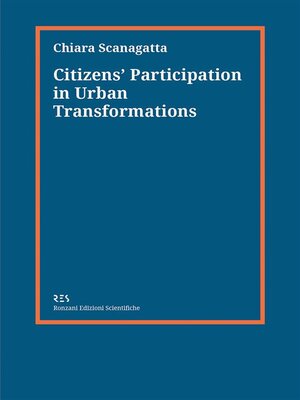
Sign up to save your library
With an OverDrive account, you can save your favorite libraries for at-a-glance information about availability. Find out more about OverDrive accounts.
Find this title in Libby, the library reading app by OverDrive.



Search for a digital library with this title
Title found at these libraries:
| Library Name | Distance |
|---|---|
| Loading... |
Humanity has always seen a close relationship between the place of living and the ways of life. Today, the quality of life certainly improves if places of living are attentive to the ever-changing needs of communities. The space of the city should not be static, but dynamic and flexible. The aim of this work is therefore to pay more and more attention to the in-depth studies, on which many architectural scholars are working today, necessary for the fabbricato to be more and more responsive to the population that uses it, both in the sense of the physical spaces and the materials that guarantee its quality and efficiency. It is a theme to which architects are paying plenty of attention because it is becoming increasingly urgent, also in view of the European Union's expectations on the matter, to investigate the urban and building components and the effects they produce in terms of e.g., quality of materials, functionality of spaces, living habits of the population, proximity of services. This work arose from an experience of personal collaboration in a European project of innovative participatory design carried out in Verona Sud during the PhD period. Subsequently, it was analysed and examined in depth which theoretical and operational aspects actually make it possible to implement urban transformations that link the relations between the environment and quality of life. In this large field, it therefore becomes predominant to re-propose the centrality of attention to the community's expectations, ways of living, decision-making systems, techniques used, knowledge and understanding of objective data on the environment, and thus to overcome common stereotypes on all these issues.







